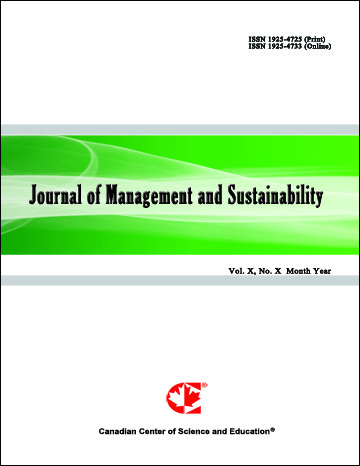Assessing Countries Sustainability: A Group Multicriteria Decision Making Methodology Approach
- Roberto Castaneda
- Pilar Arroyo
- Lourdes Loza
Abstract
Sustainability is a complex and abstract concept. However, policy-makers and representatives of global and regional associations need to assess and track the sustainable development of countries and regions to define a sustainability strategic path. The objective of this research is to propose and validate a methodology to define a simple but proper sustainability index that serves as a proxy for the identification of the segments of most and least advanced countries according to their achievement of the sustainable development goals defined by the United Nations (UN). Several well-known quantitative methodologies are used to first define a summarized index of sustainable development. Second, multicriteria decision-making methods are applied to determine the relative importance of the elements or dimensions comprising the sustainability concept. Then, the simulated judgments of a group of experts is used to compute a group weight vector by applying the Fuzzy Analytic Hierarchy Process (FAPH). Different aggregation methods are used to compute the importance that decision-makers assign to the several dimensions of sustainability. Finally, segments of countries generated with the clustering algorithm k-means are rated to identify sustainability benchmark segment(s) and groups of countries in need of support to attain the UN sustainability goals.
- Full Text:
 PDF
PDF
- DOI:10.5539/jms.v10n1p174
Journal Metrics
Google-based Impact Factor (2021): 1.54
h-index (July 2022): 37
i10-index (July 2022): 147
h5-index (2017-2021): 12
h5-median (2017-2021): 19
Index
- Academic Journals Database
- ANVUR (Italian National Agency for the Evaluation of Universities and Research Institutes)
- CAB Abstracts
- CNKI Scholar
- EconBiz
- Excellence in Research for Australia (ERA)
- GETIT@YALE (Yale University Library)
- Harvard Library
- HeinOnline
- Infotrieve
- JournalTOCs
- LOCKSS
- MIAR
- PKP Open Archives Harvester
- RePEc
- Scilit
- SHERPA/RoMEO
- Stanford Libraries
- UCR Library
Contact
- Evelyn XiaoEditorial Assistant
- jms@ccsenet.org
